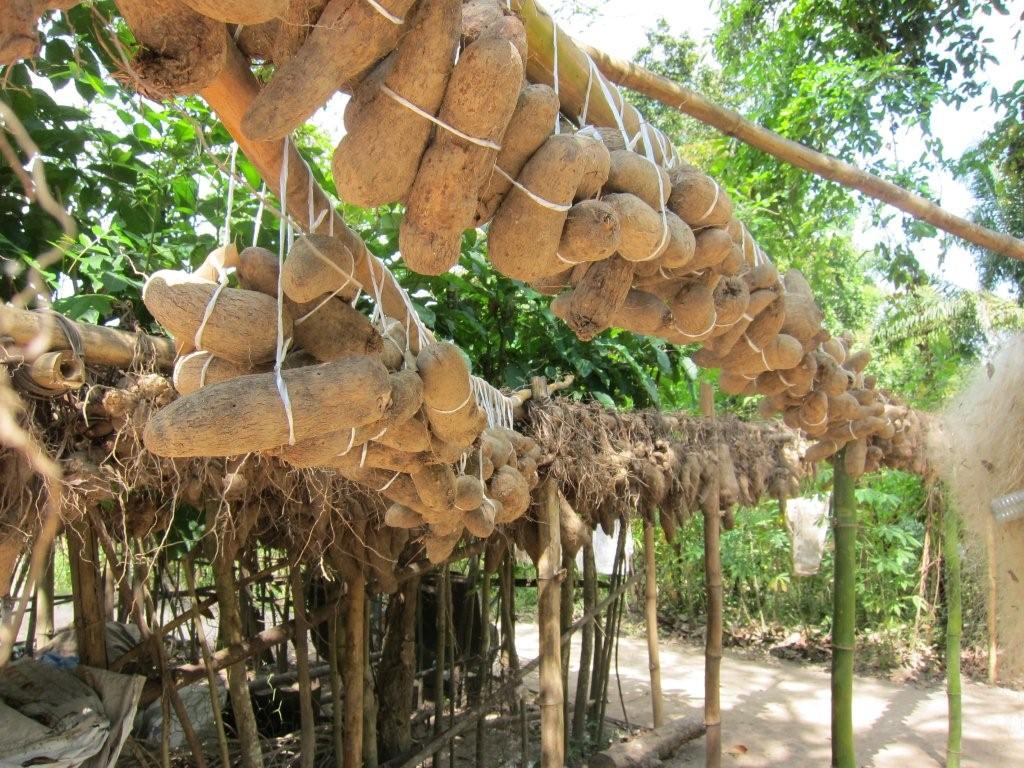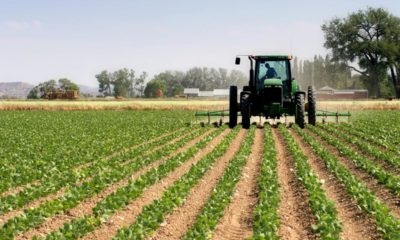- Infrastructure, Quality Control Threaten Nigeria’s Yam Export Drive
Nigeria’s ambition to be a yam exporting country may be threatened by poor infrastructure and quality control, our correspondent has learnt.
Yam does not feature among the list of major traded agricultural products for 2018, or the previous years.
An attempt to export 72 tonnes of yams from Nigeria to Europe and the United States of America in June 2017 failed as the produce arrived their destination in a bad shape, leading to their rejection.
But the country is set to take another leap into the yam export space.
The Technical Committee on Nigeria’s Yam Export Programme said it had concluded plans to export yams this quarter.
Chairman of the committee, Prof Simon Irtwange, said the country would take possession of the Ikorodu terminal to facilitate the yam exports.
According to him, the terminal has been officially designated as a base for the exportation of yam and other agricultural produce.
“This means that all vehicles and trucks carrying yams for export will head towards the Ikorodu terminal, instead of the Apapa Ports.
“At least, it will go a long way in helping the vehicles to avoid the Apapa gridlocks, save the time the produce gets to the ships and reduce the number of wastages through spoilage; the News Agency of Nigeria, quoted him as saying on Thursday.
He added, “With reduced time and spoilage, farmers will be encouraged to bring in more produce for export.”
But a senior economic analyst and a director at the Lagos Chamber of Commerce and Industry, Dr Vincent Nwani, dismissed the ambition, saying that Nigeria was not ready to export yam or any agricultural produce.
He said, “I am not sure Nigeria is ready for yam or agricultural exports. We need to go back to the drawing board.
“Yam is perishable. We don’t have the right storage facility in our ports to keep the produce while waiting for the ship to load. And it takes three months or so for the yams to get to Europe.
“The soil that we plant the yam in Nigeria, is it treated, for the yam to be accepted where it is going?
He said the specie of the yam, the quality control and logistics around the nation seaports were also issues to be put into consideration.
He added, “Another thing is export processing. Nigeria does not have an export processing structure. That is why it takes 33 signatures and 23 agencies to get exports out. It is easier to import than export.
“We need to start asking the countries we want to export to what type of yam they need, what type of soil they want us to plant the yam and how they want us to harvest and store them.
“Until these questions are answered affirmatively, anybody talking about yam export may likely get hurt.”
Asked if exporting through Ikorodu port would present some advantages, Nwani replied that Ikorodu port was a Roll-on/roll-off port.
He said, “Ikorodu port is not a deep seaport. It cannot take vessels. It is just a transit port. Even if you are pushing the export through Ikorodu port, you still have to get to Apapa before you can export, and if you don’t solve the problem of Apapa, Ikorodu port cannot function.
A haulage and transportation firm owner and the Chief Executive Officer, Starlink Global and Ideal Limited, Adeyemi Adeniji, also emphasised the importance of quality control and efficient port system.
He maintained that there must perfect logistics at the port to make export seamless, while there must be quality assurance.
He said that the transit period of the yams was also important.
Yam has been found to generate a lot of revenue for Ghana which currently accounts for 94 per cent of the total yam exports in West Africa, covering markets in the USA, Canada, UK and Europe.
Between 2005 and 2010, yam production in Ghana contributed about 16 per cent of the country’s Gross Domestic Product.
The Director-General, the Standards Organisation of Nigeria, Mr Osita Aboloma, said due to the global acceptance of yams from Ghana, Nigerian yams are usually relabelled Ghana yams and exported to the US from Ghana.


 Forex2 weeks ago
Forex2 weeks ago


 Naira2 weeks ago
Naira2 weeks ago
 Naira4 weeks ago
Naira4 weeks ago
 Company News4 weeks ago
Company News4 weeks ago
 Billionaire Watch1 week ago
Billionaire Watch1 week ago




 Naira2 weeks ago
Naira2 weeks ago




 Naira4 weeks ago
Naira4 weeks ago




 Naira1 week ago
Naira1 week ago

















